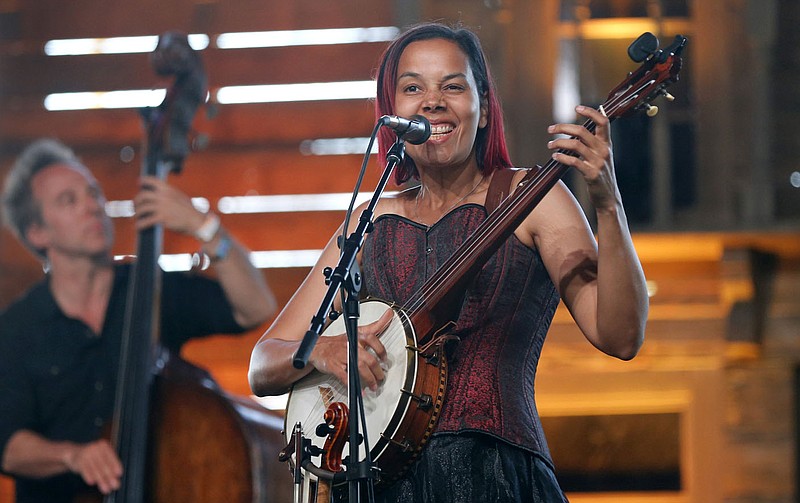What the 20 episodes of the podcast "Aria Code" boil down to is: Why should I care about opera?
Produced by the Metropolitan Opera and public radio's WNYC Studios, each engaging episode breaks down a single aria and works on a couple of levels: Opera lovers can stay in touch with the artform, which won't be presented live for months. And folks who don't know a lot about opera can get a lively introduction.
Chatty Renaissance woman Rhiannon Giddens, whom you may remember from Ken Burns' "Country Music" series, hosts "Aria Code," found at wnycstudios.org/podcasts/aria-code. An insider who's scheduled to sing Bess in a production of "Porgy & Bess" this fall and an outsider who regularly cops to being surprised by details about the music, Giddens says her mission is "to unwrap a classic aria and see what's inside."
A variety of guests help her, and the real genius of the podcast may be its casting.
Most episodes include a musician or two, an academic and someone with an unexpected take on the material, all edited into an aural collage that could include widower Jim Walter calmly breaking your heart as he talks about his late wife in an episode devoted to "Che Faro Senza Euridice" from "Orpheus and Eurydice," or writer Kyoko Katayama offering a real-life "Madama Butterfly."
Each episode's secret is discovering how its participants fit together, just as we all connect to each other.
Take "Butterfly" and the aria "Un Bel di Vedremo," most famously sung by Maria Callas. Although it's beloved, Giacomo Puccini's "Butterfly" is problematic because it victimizes and exoticizes its Japanese heroine, who has a relationship with a visiting American. She believes he loves her, but he actually bought her, and he ends up deserting her and their child.
Something similar happened to Katayama. Her Japanese mother had an affair with her American father at the end of World War II, and while her commentary doesn't grapple with whether "Butterfly" was Puccini's story to tell, Katayama's words about her mom supply a deeply human context.
"What resources did she have?" she asks. "I feel pain for my mother, and actually that's why I agreed to speak to you. I wanted to give my mother some voice she didn't have. I had to wait 70 years to do that."
You don't need to care about opera to be moved by that.
-- Chris Hewitt
Star-Tribune (Minneapolis)
